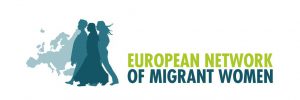
On 30 August 2021 European Network of Migrant Women, under the dome of Alter Egales, a participatory assembly made up of women’s and feminist associations from the Wallonia-Brussels Federation (Belgium) sent a carte blanche (open letter) to decision-makers in Belgium regarding the situation in Afghanistan and the necessity of guaranteeing additional protection for Afghan women and girls.
“We, feminist associations united under the Alter Egales dome, we, feminist and human rights activists, we women, cannot remain silent in the face of what is happening in Afghanistan.
The situation at Kabul airport, around and across the country is an unnamed atrocity. For a few days now, women no longer dare to leave their homes, they can no longer go to work, take a bus, etc. Numerous disappearances, forced marriages, rapes, murders are reported to us from reliable sources … The (relative) advances observed over the past 20 years, in terms of freedom and place in the society of Afghan women, are now being shattered. This is unbearable to us!
The testimonies we are collecting and coming from associations active in the field in direct contact with Afghan women make us cry out in distress: IT IS IMPERATIVE TO GUARANTEE ADDITIONAL PROTECTION FOR AFGHAN GIRLS AND WOMEN.
… We, feminist associations, members of Alter Egales, ask our federal and European political representatives, our deputies, our representatives to:
● Resume the airlifts as soon as possible to allow Afghan women who want to flee the country with their families to migrate under the best conditions of safety. Indeed, it no longer needs to be demonstrated that migrant, refugee and asylum-seeking women and girls are particularly exposed to violence, exploitation and multiple and intersectional forms of discrimination and persecution in their country. of origin, during their journey, in transit and / or in the countries of destination, especially since they are confronted with difficulties and structural barriers to overcome this violence and this exploitation in their various forms.
● Guarantee these women a DIGNIFIED reception on Belgian soil, while ensuring an inclusive and intersectional approach that takes into account the different situations and personal characteristics of Afghan women and girls arriving or already present on Belgian territory.
● Guarantee exceptional resources to deal with this exceptional situation, in particular by ensuring new reception placements in our reception centers, additional budgets corresponding to needs, accessible and adequate psychological support for any Afghan person wishing it.
● Inform Afghan families who have arrived in Belgium in recent years as soon as possible about the repatriation possibilities of their family members who have remained in Afghanistan.
● Guarantee refugee status for all Afghan nationals, or at least guarantee them subsidiary protection. To give associations active in Belgium the opportunity to initiate the administrative procedures necessary to make access to Belgian territory possible (request for passports, asylum procedure, etc.) on behalf of people still in Afghanistan in order to facilitate them the process.
● Make every effort to ensure that Afghan women and their families who remain there, by choice or by obligation, do not suffer from Taliban violence. We ask the Belgian and European authorities to negotiate humanitarian and mutual aid bridges with the Taliban so that NGOs but also associations for the defense of women’s rights can continue, or even intensify, their actions on the spot. We also ask the Belgian State and the European authorities to fund specific assistance and humanitarian protection programs for Afghan women, victims of or at risk of violence, as well as their relatives who support them.
● Ensure that measures taken during the current crisis and throughout the ensuing state of emergency comply with international obligations relating to the human rights of migrant, refugee and asylum-seeking women and girls. We recall that several international texts aim to specifically protect girls and women because of their vulnerability and specific needs. These texts recognize that girls and women are exposed to a continuum of violence that is specific to them because they are women, that they are more serious and more recurrent and that in this sense, this violence is founded on gender”.

